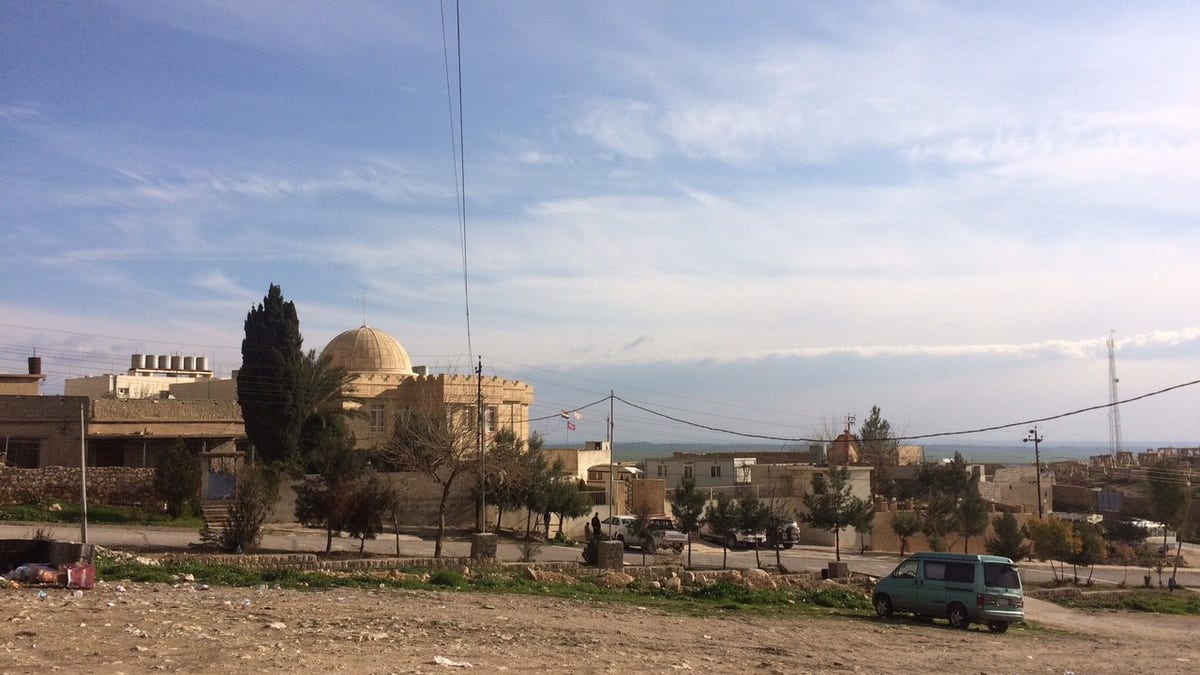
Christians in Iraq fear the increasing Iranian influence in their already dwindling communities. (Fox News)
Christians who have called northern Iraq their homeland since the first century are recovering from ISIS’ carnage only to face an emerging threat that they fear could be just as challenging: the growing influence from Iran.
That influence comes in an array of shapes and forms, and even an infiltration within the Christian community itself.
Most flagrantly, it includes the direct arming and funding of a prominent militia of Iraqi Christians. The real intentions of the militia, known as the Babylon Brigade, worry those Christians who remain in or want to return to their ancient homeland, known as the Ninevah Plains.

Rayan al-Kildani, leader of the "Babylon Brigade," at his Baghdad headquarters. (Fox News)
“We had ISIS, and now we are struggling with this increasing Iranian rule, the changing demographics,” lamented Dr. Salem Hana, a 33-year-old Iraqi Christian dentist. “The Nineveh Plains is an important part of their Crescent to link Iran with Syria, but this will have a negative impact on the survival of Iraqi Christians in their original areas.”
The Babylon Brigade, which is led by 32-year-old Rayan al-Kildani, is closely aligned to the Badr Organization, a Tehran-founded political party and militia now headed by the former Iraqi transportation minister Hadi Al-Ameri. Badr officially has vowed that “any violation to Babylon means a violation to Badr.”
While some Christians are indeed grateful for the work and sacrifice of the militias in driving out ISIS, many Iraqi Christians have said they worry that Iran, the home of Shiite Islam, is not funding and equipping the Babylon Brigade solely out of a religious impulse.
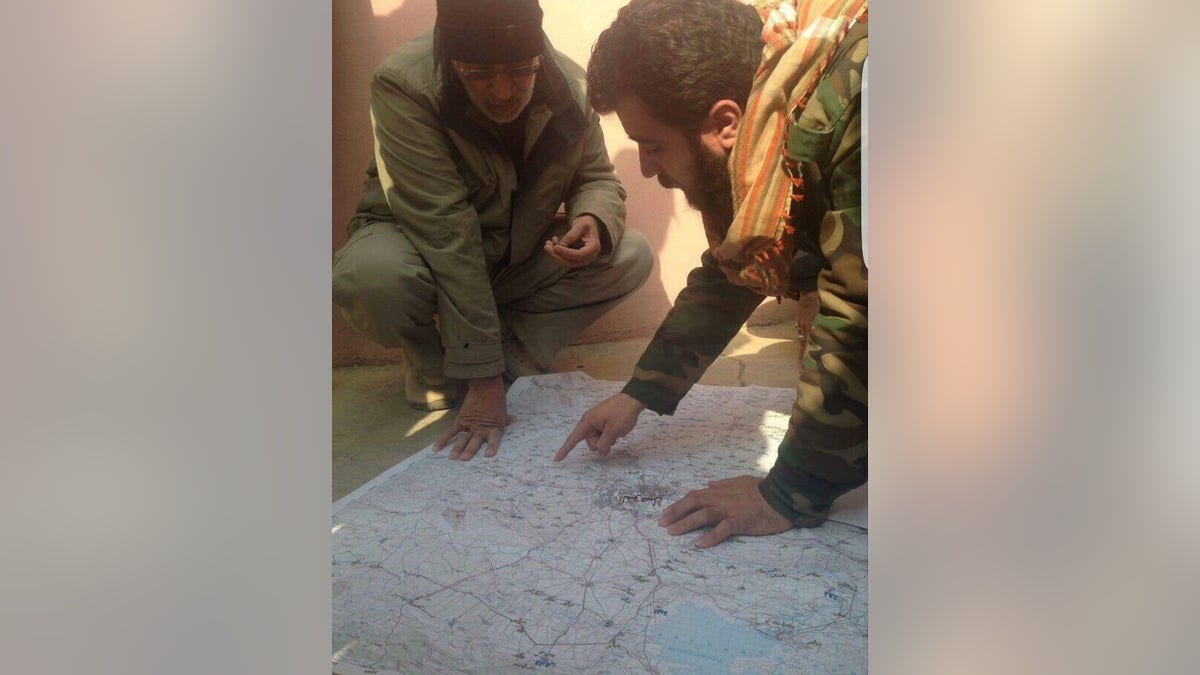
Rayan al-Kildani mapping out military maneuvers during the fight to liberate Christian areas from ISIS. (Fox News)
“Iran is directly funding a Christian militia so it can extend its authority in the Nineveh Plains,” claimed Ano Jawhar Abdoka, an Erbil-based Christian activist and international relations analyst.
And it’s not just Iraqi Christians who are concerned about Iran’s generosity to the Christian militia.
“This is a real problem and the world is looking the other way,” former congressman Frank Wolf, R-Va., who has personally tracked the issue in Iraq, told Fox News. “The land bridge enables Iranian trucks and weapons to casually go all the way through to the Mediterranean. Iran is on the move.”
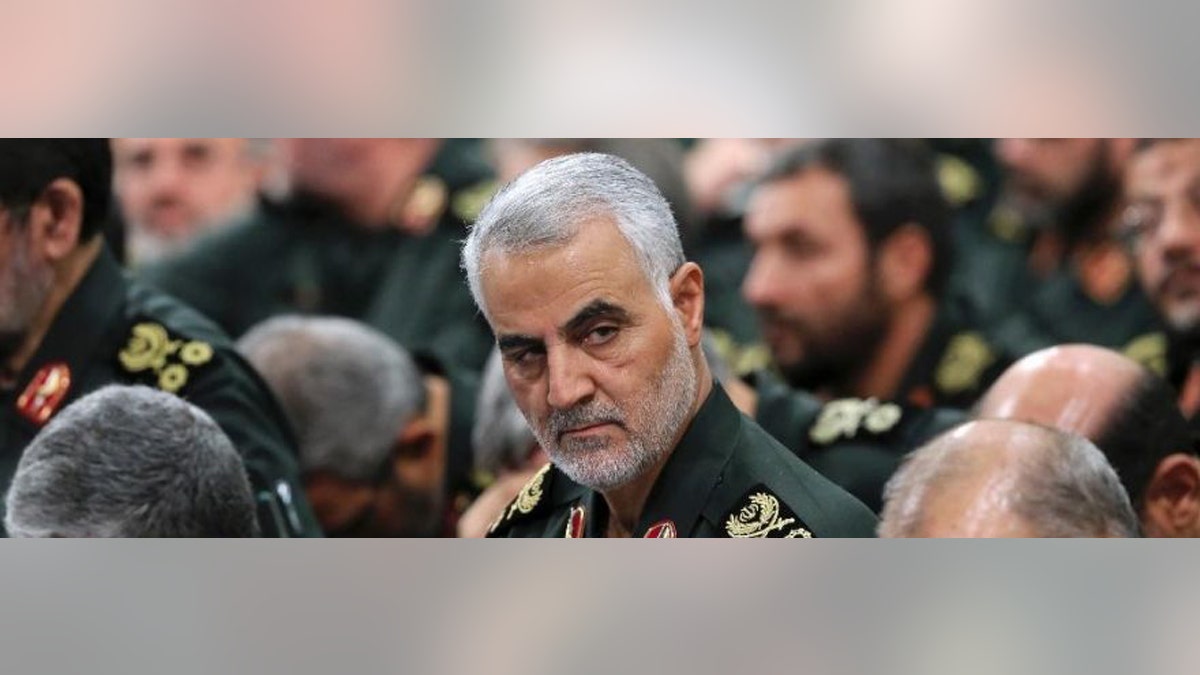
Iranian military leader and spymaster, Qassim Soleimani, is said to have personally led the liberation of Christian areas from ISIS in Syria
For that land bridge, also known as the Shiite Crescent, stretching from Tehran through northern Iraq, Syria and then into Lebanon, to be realized, Iran requires territory from the fast dwindling Christian communities of the Ninevah Plains. Many members of those communities remain displaced because of ISIS and thus cannot protect their homes. And, over the past couple of months, that land route has quickly come closer to completion.
One reason for concern is the close friendship between Kildani, the Babylon Brigade’s leader, and Iran’s most powerful military figure, Maj. Gen. Qassem Soleiman.
“Without Soleimani, much more of Iraq would have fallen into ISIS hands,” Kildani said to Fox News from his Baghdad office.
The Christian militia leader also said that Soleimani is now a “top adviser in the Iraqi government,” and that he advised on battles to take back Christian areas from ISIS in Iraq – and even took things one step further over the border in Syria where he “personally led the battles to free Christian areas. He wanted to play a lead role in liberating these lands, he wanted to protect the holy places.”
Apart from the troubling connections between the Babylon Brigade and the Iranian military, Christian civilians are finding Iran’s Islamic influence creeping into their daily lives.
That influence inside the Nineveh Plains, many Christians on the ground lamented, is becoming more blatant with each passing day.

Prominent political Christian representative in Iraq Romeo Hakari says many in his community fear "demographic change." (Fox News)
Residents have said it's not uncommon for posters to spring up featuring Iran's former Supreme Leader, the Ayatollah Khomeini. At a checkpoint near the entrance of Syriac Christian town of Bartella – a poster of the Virgin Mary last month was ripped down and replaced with a side-by-side image of Khomeini and his successor, Ayatollah Khamenei. And, in late September, a school named after Khomeini – his name hung over a large banner across the tallest building – even opened there, the ribbon-cutting ceremony attended by the Iranian Consul General in Erbil, Murtadha Abadi.
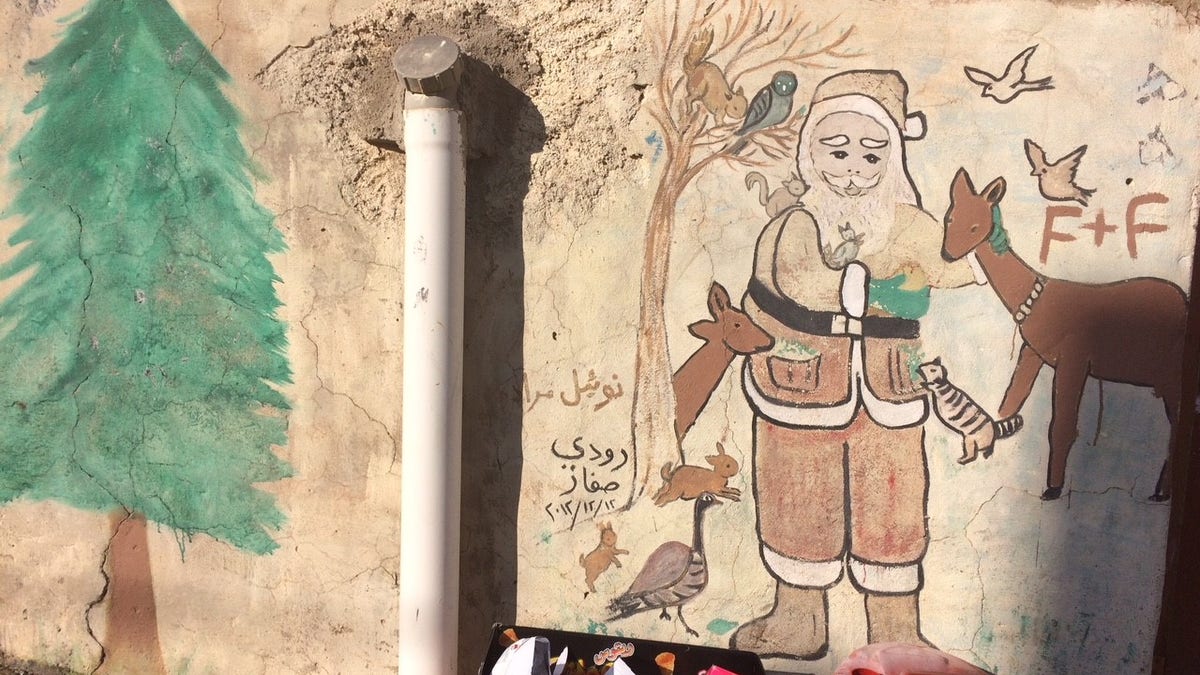
The Christian village of Alqosh in the Nineveh Plains, in northern Iraq. (Fox News)
Romeo Hakari, who heads the Bait-al-Nahrain, Assyrian Christian political party in Iraq, said that he routinely fields complaints from Christians across the Nineveh Plains about the building of houses from outsiders, presumed to be from Shia communities – including fellow minority Shia Shabaks who nonetheless adhere to many pillars of Iran’s Shia Islam.
“There is clearly a larger plan for demographic change,” Hakari opined, asserting that Christians are feeling increasingly pressured to sell their land both out of financial desperation having lost everything post-ISIS and out of fear their land may eventually be taken from them by Iranian dominion anyway.
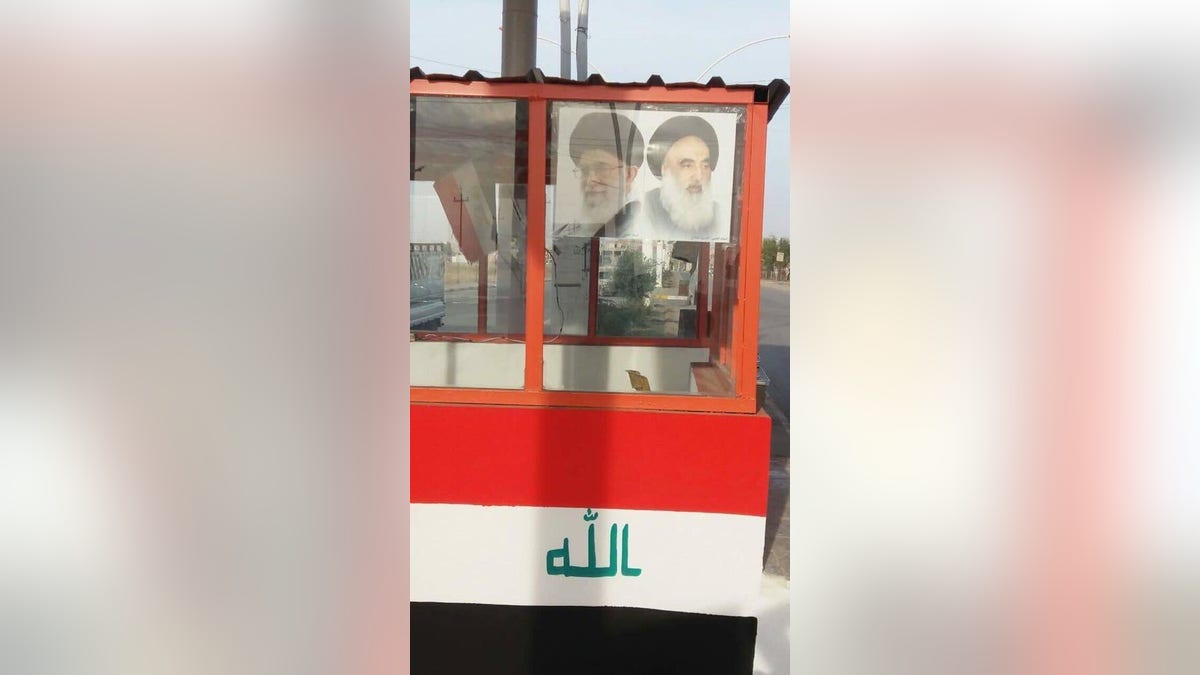
Christian locals say this checkpoint, up until just weeks ago, had a picture of the Virgin Mary, but it was replaced with images of the Iranian Supreme Leaders. (Fox News)
In Iraq’s largest Christian town of Qaraqosh in the Al-Hamdania district of the Nineveh Governorate, Christian activists bemoaned that their small university – Al-Hamdania University – was recently directed, as per the federal government education ministry, to accept upwards of 180 mostly Shia students from central and southern Iraq, prompting protest from locals who feared having to give over their properties to the new influx.








































